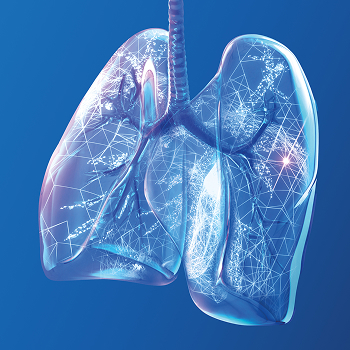Olympus Extends Partnership with American Lung Association on Lung Nodule Management Education
Newest Initiative Focuses on Guiding Patients Through Process After a Lung Nodule is Detected

CENTER VALLEY, Pa., (July 31, 2025) – In honor of World Lung Cancer Day on Aug. 1, Olympus Corp. of the Americas (OCA), a global medical technology company committed to making people’s lives healthier, safer and more fulfilling, announces its sponsorship of the American Lung Association’s newest education campaign about lung nodules.
The American Lung Association campaign focuses on educating people about what to do when an X-ray or CT scan of the lungs shows the presence of a nodule by providing educational resources to help patients navigate the diagnosis process. The American Lung Association used interviews and feedback from people diagnosed with lung cancer and their caregivers to develop the initiative.
Surveys and focus groups identified gaps in communication, understanding and support following the discovery of a lung nodule, which is a small mass that appears on a chest X-ray or CT scan. Most lung nodules are not cancerous, but a physician could order additional tests to determine the next steps based on many different patient factors and characteristics of the nodule on the images.
With patient focus at the heart of everything it does, OCA applauds the American Lung Association for its efforts to inform and guide people along the patient care pathway.
“Discovering a nodule can be an anxious and confusing process. There are several factors to consider, including the fact that most lung nodules are benign and understanding the risks assessment and process when they may be malignant,” said Dr. Thomas Gildea, Olympus Global Medical Director, Respiratory, Medical and Scientific Affairs. “An educational campaign like this is important because it’s crucial to help patients and families make sense of their results, ask the right questions, and feel more confident going forward. Clear communication and shared decision-making are essential to getting the best care.”
Key findings from interviews and surveys include:
- High anxiety due to lack of information: People reported feeling overwhelmed and unprepared after learning they had a lung nodule. Many were unclear about what it meant and wanted more upfront information from healthcare providers.
- Communication breakdowns: Participants described poor or inconsistent communication both between healthcare providers and in conversations with patients, leading to confusion and distress.
- Misunderstanding of “Watchful Waiting”: When told their nodule would be monitored over time, people often didn’t understand what that entailed, increasing fears about potential cancer progression.
- Inconsistent diagnostic processes: There was significant variability in how providers assessed whether a nodule was cancerous. People in the focus group and surveys wanted more transparency and direction throughout the process.
The materials developed by the American Lung Association as part of this campaign include a guide to help people understand their lung nodule report, a resource for understanding lung nodule follow-up guidelines and a worksheet to help people understand next steps.
This initiative represents a continuation of the relationship between the American Lung Association and OCA, which began with lung nodules educational resources designed to help patients understand lung nodules and what they could mean as part of a possible lung cancer diagnosis.
The State of Lung Cancer
Lung cancer remains the leading cause of cancer death in the U.S. as it’s often caught at later stages, when the survival rate is much lower. Only 16% of those considered high risk are being screened, according to the American Lung Association’s 2024 State of Lung Cancer Report.1
Early detection through preventive screenings and treatment options such as immunotherapy have helped improve the national average five-year survival rate after a lung cancer diagnosis to 28.4%.1 Olympus is proud to have played a role in developing the technology to help further the field of interventional pulmonology and lung cancer treatment.
EBUS-TBNA (endobronchial ultrasound-guided transbronchial needle aspiration) has helped lay the groundwork for targeted cancer treatment such as immunotherapy. The technology helps interventional pulmonologists locate nodules and lymph nodes and collect tissue samples needed to diagnose and stage the disease. This analysis informs the personalized cancer therapy provided by treatments like immunotherapy.
# # #
About Olympus
At Olympus, we are committed to Our Purpose of making people’s lives healthier, safer and more fulfilling. As a global medical technology company, we partner with healthcare professionals to provide solutions and services for early detection, diagnosis and minimally invasive treatment, aiming to improve patient outcomes by elevating the standard of care in targeted disease states.
Olympus Corporation of the Americas, a wholly owned subsidiary of Olympus Corporation, is headquartered in Center Valley, Pennsylvania, USA, and employs more than 4,500 employees throughout locations in North and South America. For more information, visit olympusamerica.com.
1 American Lung Association, “2024 State of Lung Cancer Report”


































